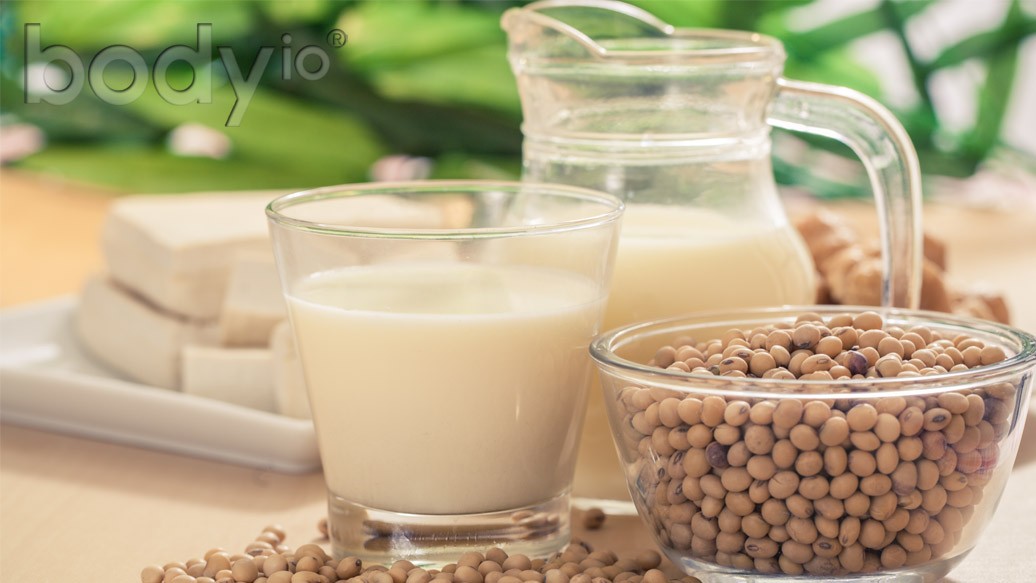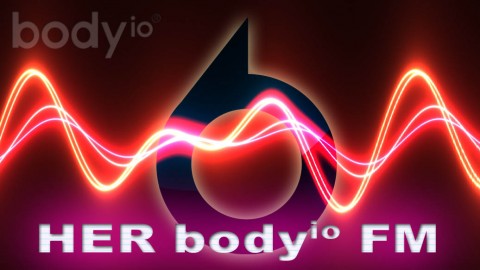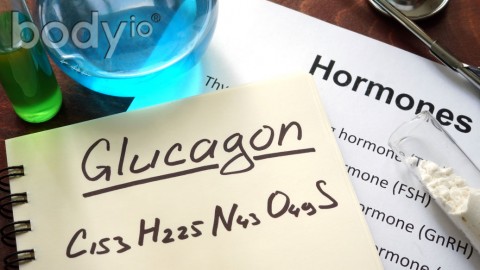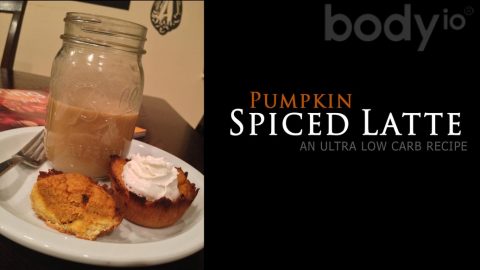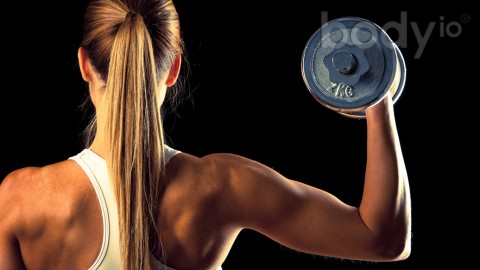More from my original research notes:
Soybeans are used for damned near everything: as industrial lubricants, cleaners, diesel fuel additives, paint removers, crayons, meatless burgers, non-dairy ice cream, infant formulas, and high-concentration protein powders. Read the ingredient labels of various common food products, and you’ll see that many of them are fortified with some type of soybean product. For the scope of this piece, the majority of our attention will focus on the generalities of soy products, because all soy products carry hormonally active substances called isoflavones.
Soy protein is highly digestible for a plant protein, but it’s nothing special in terms of bioavailability (BA). Its level in this regard is only about 92 percent of that of regular milk protein[1]. In fairness, however, when compared to milk, a much higher rate of essential amino acids is lost, and therefore unusable, during soy protein digestion[200]. Studies on the BA of soy protein place it just below egg and milk, but far below that of whey proteins[2-6, 202]. This makes soy equivalent to most animal meat sources in this regard[201]. Long story short, soy protein is an extremely cheap and moderately potent protein.
Be careful when considering the implications of the paragraph above. Soy protein only possesses a relatively high BA when it’s isolated. This high BA doesn’t apply to soy products in general, because they’re low in the essential amino acid methionine[4,7]. More importantly, they contain chemicals that decrease the digestibility of protein[8, 9, 198, 199]. Consuming soy products can decrease the protein quality of an entire meal[10]. For example, beef normally has a BA of 90 percent. When consumed with soy, this reduces to 26 percent[11]. Adding soy products to a diet—other than soy protein extracts—severely quiets the body’s ability to digest protein.
Soy has been shown to lower cholesterol levels[7, 12-55], and has been implicated in attenuating breast cancer risk[56-70], softening the severity of hot flashes during menopause[71-75], and decreasing prostate cancer risk[35, 76-96]. It should be noted that the results in humans are somewhat less than promising for prostate cancer[42, 97-100], and the significance of soy’s impact on blood lipids has been called into question[26, 27, 101-105].
Also, if you think drinking soy milk is a convenient way to lower your cholesterol levels, think again. Soy milk is far less effective at this than other soy products[106-110]. Regardless, this is still an interesting list of characteristics, some of which are beneficial.
Most of these effects aren’t caused solely by the soy protein itself. Soybeans contain high levels of potent substances called isoflavones. Isoflavones, chemically active in humans and other animals, appear to be responsible for several of the major benefits of eating soy protein. Understand, however, that several other plants also possess isoflavones which may have actions in humans[50, 111-117]. Soy just happens to have very high levels of many different isoflavones.
At this point, you’re probably ready to hear me say that soy protein and soy products make an excellent addition to any diet. I’m not going to make that recommendation, though. For all the benefits derived from soy and isoflavones, there are many downsides we don’t hear about—and new consequences of consumption are discovered almost daily. Although there are many possible side effects that result from eating soy, there are three main reasons to avoid it. Soy:
1. May decrease thyroid hormone and lower metabolism[55, 118-122].
2. May stop fat tissue from releasing triglycerides, consequently making it extremely difficult to lose body fat[123-125].
3. Inhibits muscle tissue repair and production[126-129].
As you can see, eating soy creates a situation which diametrically opposes healthy fat loss. This is obviously counterproductive. There is some evidence, although not much, that soy protein may increase fat loss in genetically obese mice[213-214]. If you’ve read my leptin write-up, you’ll recall that the vast majority of obese humans aren’t genetically obese. The bulk of the evidence favors eliminating soy from any fat loss diet until more research is performed.
In addition to potential problems with fat loss, there are other reasons why you should be concerned. Soy-based products:
Possess potent estrogenic (feminizing) properties[13-139].
Increase menstrual cycle length[22, 23, 59, 61, 118, 140].
Increase breast tumor growth[141-152].
Decrease testosterone levels[76, 100, 153-155] and decrease testosterone effectiveness[82, 87, 100, 156].
Are associated with impaired mental function and brain deterioration when two or more servings per week are consumed[170-172].
Decrease iron absorption by over 60 percent[203-212].
Impair immune function[155, 157-162].
May cause pancreatic abnormalities[163-169, 215]. The pancreas is the organ that produces insulin, glucagon, and other important hormones.
Negatively affect cardiovascular health[12, 21, 54, 173-175].
May cause symptoms of type II diabetes[176-177].
The majority of potential side effects from soy—both good and bad, are currently uncertain. Most of the studies use good methods and have solid results, but they haven’t been reproduced or followed up in humans or other animals. This isn’t an all-inclusive list, either.
Luckily, the potential for developing these maladies will mostly occur in individuals who consume large amounts of soy products. In western nations, this consists almost exclusively of two groups: Vegetarians/vegans, and infants consuming soy-based formulas[178].
My primary concern here is for infants who have concentrations of potent isoflavones in their system, since this is 13,000-22,000 times higher than normal[179]. From animal studies, levels this high are potentially hazardous to infants[160, 164, 165, 180-186]. The difficulty of predicting the effect of this extremely elevated level of compounds is complicated by the lack of knowledge of what other properties soy and its isoflavones might possess.
This is why I hesitate to recommend soy protein as a dietary supplement. My advice runs contrary to most: Soy consumption should be kept to a minimum, and you should avoid using soy infant formulas with your children. There are just too many unknowns, and numerous researchers tend to agree that much more study is needed before incorporating large amounts into a diet[187-193].
You also shouldn’t be worried about losing the cholesterol-lowering effects of soy. Researchers have found that simply replacing 25 percent of your dietary carbohydrates with non-soy protein produces better health benefits on blood lipids than supplementing with soy[194-197]. At the very least, soy products should play no role in any kind of weight-reducing diet.
[expand title=”References (click to expand)”]
1. Mariotti F, Mahe S, Benamouzig R, Luengo C, Dare S, Gaudichon C, Tome D. Nutritional value of [15N]-soy protein isolate assessed from ileal digestibility and postprandial protein utilization in humans. J Nutr. 1999 Nov;129(11):1992-7. -2-10-
2. Gilani GS, Sepehr E. Protein digestibility and quality in products containing antinutritional factors are adversely affected by old age in rats. J Nutr. 2003 Jan;133(1):220-5. -9-1-
3. Gutierrez MA, Mitsuya T, Hatta H, Koketsu M, Kobayashi R, Juneja LR, Kim M. Comparison of egg-yolk protein hydrolysate and soyabean protein hydrolysate in terms of nitrogen utilization. Br J Nutr. 1998 Nov;80(5):477-84. -12-1-
4. de Oliveira JE, de Souza N, Jordao Junior AA, Marchin JS. Methionine supplementation of soya products: effects on nitrogen balance parameters. Arch Latinoam Nutr. 1998 Mar;48(1):35-40. -12-2-
5. Gazaeva AM. [Biological value of soy protein concentrate] Vopr Pitan. 1985 Jul-Aug;(4):40-3. Russian. -12-4-
6. Sotelo A, Hernandez M, Frenk S. [Biological evaluation, in rats and in humans, of a milk product without lactose, and of a soybean protein formula for use in protein-calorie malnutrition] Arch Latinoam Nutr. 1984 Jun;34(2):333-42. Spanish. -12-5-
7. Kern M, Ellison D, Marroquin Y, Ambrose M, Mosier K. Effects of soy protein supplemented with methionine on blood lipids and adiposity of rats. Nutrition. 2002 Jul-Aug;18(7-8):654-6. -13-35-
8. Miyagi Y, Shinjo S, Nishida R, Miyagi C, Takamatsu K, Yamamoto T, Yamamoto S. Trypsin inhibitor activity in commercial soybean products in Japan. J Nutr Sci Vitaminol (Tokyo). 1997 Oct;43(5):575-80. -9-5-
9. Baker EC, Rackis JJ. Preparation of unheated soy protein isolates with low trypsin inhibitor content. Adv Exp Med Biol. 1986;199:349-55. -9-11-
10. Fouillet H, Mariotti F, Gaudichon C, Bos C, Tome D. Peripheral and splanchnic metabolism of dietary nitrogen are differently affected by the protein source in humans as assessed by compartmental modeling. J Nutr. 2002 Jan;132(1):125-33. -2-9-
11. Abdel-Aziz S, Hussein L, Esmail S, el-Awadi N. In vivo rat assay for true protein digestibility and protein quality of beef and meat products extended with soy protein. Int J Food Sci Nutr. 1997 Jan;48(1):51-6. -12-3-
12. Higashi K, Abata S, Iwamoto N, Ogura M, Yamashita T, Ishikawa O, Ohslzu F, Nakamura H. Effects of soy protein on levels of remnant-like particles cholesterol and vitamin E in healthy men. J Nutr Sci Vitaminol (Tokyo). 2001 Aug;47(4):283-8. -1-11-
13. Slavin JL, Karr SC, Hutchins AM, Lampe JW. Influence of soybean processing, habitual diet, and soy dose on urinary isoflavonoid excretion. Am J Clin Nutr. 1998 Dec;68(6 Suppl):1492S-1495S. -2-15-
14. Wangen KE, Duncan AM, Xu X, Kurzer MS. Soy isoflavones improve plasma lipids in normocholesterolemic and mildly hypercholesterolemic postmenopausal women. Am J Clin Nutr. 2001 Feb;73(2):225-31. -2-19-
15. Merz-Demlow BE, Duncan AM, Wangen KE, Xu X, Carr TP, Phipps WR, Kurzer MS. Soy isoflavones improve plasma lipids in normocholesterolemic, premenopausal women. Am J Clin Nutr. 2000 Jun;71(6):1462-9. -2-23-
16. Nilausen K, Meinertz H. Variable lipemic response to dietary soy protein in healthy, normolipemic men. Am J Clin Nutr. 1998 Dec;68(6 Suppl):1380S-1384S. -2-32-
17. Meinertz H, Nilausen K, Faergeman O. Effects of dietary proteins on plasma lipoprotein levels in normal subjects: interaction with dietary cholesterol. J Nutr Sci Vitaminol (Tokyo). 1990 Oct;36 Suppl 2:S157-64. -2-33-
18. Meinertz H, Nilausen K, Faergeman O. Soy protein and casein in cholesterol-enriched diets: effects on plasma lipoproteins in normolipidemic subjects. Am J Clin Nutr. 1989 Oct;50(4):786-93. -2-34-
19. Meinertz H, Faergeman O, Nilausen K, Chapman MJ, Goldstein S, Laplaud PM. Effects of soy protein and casein in low cholesterol diets on plasma lipoproteins in normolipidemic subjects. Atherosclerosis. 1988 Jul;72(1):63-70. -2-35-
20. Dalais FS, Ebeling PR, Kotsopoulos D, McGrath BP, Teede HJ. The effects of soy protein containing isoflavones on lipids and indices of bone resorption in postmenopausal women. Clin Endocrinol (Oxf). 2003 Jun;58(6):704-9. -2-38-
21. Teede HJ, Dalais FS, Kotsopoulos D, Liang YL, Davis S, McGrath BP. Dietary soy has both beneficial and potentially adverse cardiovascular effects: a placebo-controlled study in men and postmenopausal women. J Clin Endocrinol Metab. 2001 Jul;86(7):3053-60. -2-40-
22. Cassidy A, Bingham S, Setchell K. Biological effects of isoflavones in young women: importance of the chemical composition of soyabean products. Br J Nutr. 1995 Oct;74(4):587-601. -2-53-
23. Kumar NB, Cantor A, Allen K, Riccardi D, Cox CE. The specific role of isoflavones on estrogen metabolism in premenopausal women. Cancer. 2002 Feb 15;94(4):1166-74. -2-54-
24. Washburn S, Burke GL, Morgan T, Anthony M. Effect of soy protein supplementation on serum lipoproteins, blood pressure, and menopausal symptoms in perimenopausal women. Menopause. 1999 Spring;6(1):7-13. -2-64-
25. Desroches S, Mauger JF, Ausman LM, Lichtenstein AH, Lamarche B. Soy protein favorably affects LDL size independently of isoflavones in hypercholesterolemic men and women. J Nutr. 2004 Mar;134(3):574-9. -6-1-
26. Lichtenstein AH, Jalbert SM, Adlercreutz H, Goldin BR, Rasmussen H, Schaefer EJ, Ausman LM. Lipoprotein response to diets high in soy or animal protein with and without isoflavones in moderately hypercholesterolemic subjects. Arterioscler Thromb Vasc Biol. 2002 Nov 1;22(11):1852-8. -6-2-
27. Gardner CD, Newell KA, Cherin R, Haskell WL. The effect of soy protein with or without isoflavones relative to milk protein on plasma lipids in hypercholesterolemic postmenopausal women. Am J Clin Nutr. 2001 Apr;73(4):728-35. -6-3-
28. Weggemans RM, Trautwein EA. Relation between soy-associated isoflavones and LDL and HDL cholesterol concentrations in humans: a meta-analysis. Eur J Clin Nutr. 2003 Aug;57(8):940-6. -6-4-
29. Crouse JR 3rd, Morgan T, Terry JG, Ellis J, Vitolins M, Burke GL. A randomized trial comparing the effect of casein with that of soy protein containing varying amounts of isoflavones on plasma concentrations of lipids and lipoproteins. Arch Intern Med. 1999 Sep 27;159(17):2070-6. -6-5-
30. Greaves KA, Parks JS, Williams JK, Wagner JD. Intact dietary soy protein, but not adding an isoflavone-rich soy extract to casein, improves plasma lipids in ovariectomized cynomolgus monkeys. J Nutr. 1999 Aug;129(8):1585-92. -6-6-
31. Wagner JD, Schwenke DC, Greaves KA, Zhang L, Anthony MS, Blair RM, Shadoan MK, Williams JK. Soy protein with isoflavones, but not an isoflavone-rich supplement, improves arterial low-density lipoprotein metabolism and atherogenesis. Arterioscler Thromb Vasc Biol. 2003 Dec;23(12):2241-6. Epub 2003 Oct 23. -6-7-
32. Anthony MS, Clarkson TB, Williams JK. Effects of soy isoflavones on atherosclerosis: potential mechanisms. Am J Clin Nutr. 1998 Dec;68(6 Suppl):1390S-1393S. -6-8-
33. Teixeira SR, Potter SM, Weigel R, Hannum S, Erdman JW Jr, Hasler CM. Effects of feeding 4 levels of soy protein for 3 and 6 wk on blood lipids and apolipoproteins in moderately hypercholesterolemic men. Am J Clin Nutr. 2000 May;71(5):1077-84. -6-9-
34. Mackey R, Ekangaki A, Eden JA. The effects of soy protein in women and men with elevated plasma lipids. Biofactors. 2000;12(1-4):251-7. -6-10-
35. Jenkins DJ, Kendall CW, D’Costa MA, Jackson CJ, Vidgen E, Singer W, Silverman JA, Koumbridis G, Honey J, Rao AV, Fleshner N, Klotz L. Soy consumption and phytoestrogens: effect on serum prostate specific antigen when blood lipids and oxidized low-density lipoprotein are reduced in hyperlipidemic men. J Urol. 2003 Feb;169(2):507-11. -6-11-
36. Wong WW, Smith EO, Stuff JE, Hachey DL, Heird WC, Pownell HJ. Cholesterol-lowering effect of soy protein in normocholesterolemic and hypercholesterolemic men. Am J Clin Nutr. 1998 Dec;68(6 Suppl):1385S-1389S. -6-12-
37. Kirk EA, Sutherland P, Wang SA, Chait A, LeBoeuf RC. Dietary isoflavones reduce plasma cholesterol and atherosclerosis in C57BL/6 mice but not LDL receptor-deficient mice. J Nutr. 1998 Jun;128(6):954-9. -6-13-
38. Jenkins DJ, Kendall CW, Vidgen E, Vuksan V, Jackson CJ, Augustin LS, Lee B, Garsetti M, Agarwal S, Rao AV, Cagampang GB, Fulgoni V 3rd. Effect of soy-based breakfast cereal on blood lipids and oxidized low-density lipoprotein. Metabolism. 2000 Nov;49(11):1496-500. -6-14-
39. Baum JA, Teng H, Erdman JW Jr, Weigel RM, Klein BP, Persky VW, Freels S, Surya P, Bakhit RM, Ramos E, Shay NF, Potter SM. Long-term intake of soy protein improves blood lipid profiles and increases mononuclear cell low-density-lipoprotein receptor messenger RNA in hypercholesterolemic, postmenopausal women. Am J Clin Nutr. 1998 Sep;68(3):545-51. -6-15-
40. Potter SM, Baum JA, Teng H, Stillman RJ, Shay NF, Erdman JW Jr. Soy protein and isoflavones: their effects on blood lipids and bone density in postmenopausal women. Am J Clin Nutr. 1998 Dec;68(6 Suppl):1375S-1379S. -6-16-
41. Jenkins DJ, Kendall CW, Jackson CJ, Connelly PW, Parker T, Faulkner D, Vidgen E, Cunnane SC, Leiter LA, Josse RG. Effects of high- and low-isoflavone soyfoods on blood lipids, oxidized LDL, homocysteine, and blood pressure in hyperlipidemic men and women. Am J Clin Nutr. 2002 Aug;76(2):365-72. -6-17-
42. Urban D, Irwin W, Kirk M, Markiewicz MA, Myers R, Smith M, Weiss H, Grizzle WE, Barnes S. The effect of isolated soy protein on plasma biomarkers in elderly men with elevated serum prostate specific antigen. J Urol. 2001 Jan;165(1):294-300. -6-18-
43. Ni W, Yoshida S, Tsuda Y, Nagao K, Sato M, Imaizumi K. Ethanol-extracted soy protein isolate results in elevation of serum cholesterol in exogenously hypercholesterolemic rats. Lipids. 1999 Jul;34(7):713-6. -6-19-
44. Puska P, Korpelainen V, Hoie LH, Skovlund E, Lahti T, Smerud KT. Soy in hypercholesterolaemia: a double-blind, placebo-controlled trial. Eur J Clin Nutr. 2002 Apr;56(4):352-7. -6-21-
45. Ho SC, Woo JL, Leung SS, Sham AL, Lam TH, Janus ED. Intake of soy products is associated with better plasma lipid profiles in the Hong Kong Chinese population. J Nutr. 2000 Oct;130(10):2590-3. -6-22-
46. Jenkins DJ, Kendall CW, Garsetti M, Rosenberg-Zand RS, Jackson CJ, Agarwal S, Rao AV, Diamandis EP, Parker T, Faulkner D, Vuksan V, Vidgen E. Effect of soy protein foods on low-density lipoprotein oxidation and ex vivo sex hormone receptor activity–a controlled crossover trial. Metabolism. 2000 Apr;49(4):537-43. -6-23-
47. Tonstad S, Smerud K, Hoie L. A comparison of the effects of 2 doses of soy protein or casein on serum lipids, serum lipoproteins, and plasma total homocysteine in hypercholesterolemic subjects. Am J Clin Nutr. 2002 Jul;76(1):78-84. -6-24-
48. Wang Y, Jones PJ, Ausman LM, Lichtenstein AH. Soy protein reduces triglyceride levels and triglyceride fatty acid fractional synthesis rate in hypercholesterolemic subjects. Atherosclerosis. 2004 Apr;173(2):269-75. -6-27-
49. Sagara M, Kanda T, NJelekera M, Teramoto T, Armitage L, Birt N, Birt C, Yamori Y. Effects of dietary intake of soy protein and isoflavones on cardiovascular disease risk factors in high risk, middle-aged men in Scotland. J Am Coll Nutr. 2004 Feb;23(1):85-91. -6-28-
50. Ridges L, Sunderland R, Moerman K, Meyer B, Astheimer L, Howe P. Cholesterol lowering benefits of soy and linseed enriched foods. Asia Pac J Clin Nutr. 2001;10(3):204-11. -6-37-
51. Widhalm K, Brazda G, Schneider B, Kohl S. Effect of soy protein diet versus standard low fat, low cholesterol diet on lipid and lipoprotein levels in children with familial or polygenic hypercholesterolemia. J Pediatr. 1993 Jul;123(1):30-4. -6-38-
52. Vigna GB, Pansini F, Bonaccorsi G, Albertazzi P, Donega P, Zanotti L, De Aloysio D, Mollica G, Fellin R. Plasma lipoproteins in soy-treated postmenopausal women: a double-blind, placebo-controlled trial. Nutr Metab Cardiovasc Dis. 2000 Dec;10(6):315-22. -8-29-
53. Demonty I, Lamarche B, Deshaies Y, Jacques H. Role of soy isoflavones in the hypotriglyceridemic effect of soy protein in the rat. J Nutr Biochem. 2002 Nov;13(11):671-677. -13-9-
54. Ashton E, Ball M. Effects of soy as tofu vs meat on lipoprotein concentrations. Eur J Clin Nutr. 2000 Jan;54(1):14-9. -13-28-
55. Balmir F, Staack R, Jeffrey E, Jimenez MD, Wang L, Potter SM. An extract of soy flour influences serum cholesterol and thyroid hormones in rats and hamsters. J Nutr. 1996 Dec;126(12):3046-53. -13-36-
56. Xu X, Duncan AM, Wangen KE, Kurzer MS. Soy consumption alters endogenous estrogen metabolism in postmenopausal women. Cancer Epidemiol Biomarkers Prev. 2000 Aug;9(8):781-6. -2-21-
57. Duncan AM, Merz-Demlow BE, Xu X, Phipps WR, Kurzer MS. Premenopausal equol excretors show plasma hormone profiles associated with lowered risk of breast cancer. Cancer Epidemiol Biomarkers Prev. 2000 Jun;9(6):581-6. -2-22-
58. Xu X, Duncan AM, Merz BE, Kurzer MS. Effects of soy isoflavones on estrogen and phytoestrogen metabolism in premenopausal women. Cancer Epidemiol Biomarkers Prev. 1998 Dec;7(12):1101-8. -2-26-
59. Lu LJ, Anderson KE, Grady JJ, Nagamani M. Effects of soya consumption for one month on steroid hormones in premenopausal women: implications for breast cancer risk reduction. Cancer Epidemiol Biomarkers Prev. 1996 Jan;5(1):63-70. -2-44-
60. Nagata C, Takatsuka N, Inaba S, Kawakami N, Shimizu H. Effect of soymilk consumption on serum estrogen concentrations in premenopausal Japanese women. J Natl Cancer Inst. 1998 Dec 2;90(23):1830-5. -2-46-
61. Cassidy A, Bingham S, Setchell KD. Biological effects of a diet of soy protein rich in isoflavones on the menstrual cycle of premenopausal women. Am J Clin Nutr. 1994 Sep;60(3):333-40. -2-47-
62. Lu LJ, Anderson KE, Grady JJ, Nagamani M. Effects of an isoflavone-free soy diet on ovarian hormones in premenopausal women. J Clin Endocrinol Metab. 2001 Jul;86(7):3045-52. -2-48-
63. Wu AH, Stanczyk FZ, Hendrich S, Murphy PA, Zhang C, Wan P, Pike MC. Effects of soy foods on ovarian function in premenopausal women. Br J Cancer. 2000 Jun;82(11):1879-86. -2-52-
64. Harris RM, Wood DM, Bottomley L, Blagg S, Owen K, Hughes PJ, Waring RH, Kirk CJ. Phytoestrogens are potent inhibitors of estrogen sulfation: implications for breast cancer risk and treatment. J Clin Endocrinol Metab. 2004 Apr;89(4):1779-87. -3-7-
65. Cabanes A, Wang M, Olivo S, DeAssis S, Gustafsson JA, Khan G, Hilakivi-Clarke L. Prepubertal estradiol and genistein exposures up-regulate BRCA1 mRNA and reduce mammary tumorigenesis. Carcinogenesis. 2004 May;25(5):741-8. Epub 2004 Jan 16. -3-13-
66. Chen WF, Huang MH, Tzang CH, Yang M, Wong MS. Inhibitory actions of genistein in human breast cancer (MCF-7) cells. Biochim Biophys Acta. 2003 Jul 14;1638(2):187-96. -3-22-
67. He FJ, Wang J, Niu JZ, Wang JF. [The inhibiting effect of genistein on the growth of human breast cancer cells in vitro] Zhongguo Zhong Yao Za Zhi. 2002 Dec;27(12):936-9. Chinese. -3-24-
68. Jin Z, MacDonald RS. Soy isoflavones increase latency of spontaneous mammary tumors in mice. J Nutr. 2002 Oct;132(10):3186-90. -6-32-
69. Rowlands JC, Hakkak R, Ronis MJ, Badger TM. Altered mammary gland differentiation and progesterone receptor expression in rats fed soy and whey proteins. Toxicol Sci. 2002 Nov;70(1):40-5. -8-15-
70. Nagata C, Kabuto M, Kurisu Y, Shimizu H. Decreased serum estradiol concentration associated with high dietary intake of soy products in premenopausal Japanese women. Nutr Cancer. 1997;29(3):228-33. -13-29-
71. Murkies AL, Lombard C, Strauss BJ, Wilcox G, Burger HG, Morton MS. Dietary flour supplementation decreases post-menopausal hot flushes: effect of soy and wheat. Maturitas. 1995 Apr;21(3):189-95. -2-55-
72. Faure ED, Chantre P, Mares P. Effects of a standardized soy extract on hot flushes: a multicenter, double-blind, randomized, placebo-controlled study. Menopause. 2002 Sep-Oct;9(5):329-34. -2-56-
73. Albertazzi P, Pansini F, Bonaccorsi G, Zanotti L, Forini E, De Aloysio D. The effect of dietary soy supplementation on hot flushes. Obstet Gynecol. 1998 Jan;91(1):6-11. Erratum in: Obstet Gynecol 2001 Oct;98(4):702. -2-57-
74. Nagata C, Shimizu H, Takami R, Hayashi M, Takeda N, Yasuda K. Hot flushes and other menopausal symptoms in relation to soy product intake in Japanese women. Climacteric. 1999 Mar;2(1):6-12. -2-60-
75. Russo R, Corosu R. The clinical use of a preparation based on phyto-oestrogens in the treatment of menopausal disorders. Acta Biomed Ateneo Parmense. 2003 Dec;74(3):137-43. -3-9-
76. Kumar NB, Cantor A, Allen K, Riccardi D, Besterman-Dahan K, Seigne J, Helal M, Salup R, Pow-Sang J. The specific role of isoflavones in reducing prostate cancer risk. Prostate. 2004 May 1;59(2):141-7. -1-1-
77. Zhou JR, Yu L, Zhong Y, Blackburn GL. Soy phytochemicals and tea bioactive components synergistically inhibit androgen-sensitive human prostate tumors in mice. J Nutr. 2003 Feb;133(2):516-21. -1-4-
78. Fritz WA, Eltoum IE, Cotroneo MS, Lamartiniere CA. Genistein alters growth but is not toxic to the rat prostate. J Nutr. 2002 Oct;132(10):3007-11. -1-7-
79. Zhou JR, Yu L, Zhong Y, Nassr RL, Franke AA, Gaston SM, Blackburn GL. Inhibition of orthotopic growth and metastasis of androgen-sensitive human prostate tumors in mice by bioactive soybean components. Prostate. 2002 Oct 1;53(2):143-53. -1-8-
80. Davis JN, Muqim N, Bhuiyan M, Kucuk O, Pienta KJ, Sarkar FH. Inhibition of prostate specific antigen expression by genistein in prostate cancer cells. Int J Oncol. 2000 Jun;16(6):1091-7. -1-14-
81. Sun XY, Plouzek CA, Henry JP, Wang TT, Phang JM. Increased UDP-glucuronosyltransferase activity and decreased prostate specific antigen production by biochanin A in prostate cancer cells. Cancer Res. 1998 Jun 1;58(11):2379-84. -1-16-
82. Lund TD, Munson DJ, Haldy ME, Setchell KD, Lephart ED, Handa RJ. Equol is a novel anti-androgen that inhibits prostate growth and hormone feedback. Biol Reprod. 2004 Apr;70(4):1188-95. Epub 2003 Dec 17. -2-1-
83. Yu L, Blackburn GL, Zhou JR. Genistein and daidzein downregulate prostate androgen-regulated transcript-1 (PART-1) gene expression induced by dihydrotestosterone in human prostate LNCaP cancer cells. J Nutr. 2003 Feb;133(2):389-92. -2-28-
84. Zhou JR, Gugger ET, Tanaka T, Guo Y, Blackburn GL, Clinton SK. Soybean phytochemicals inhibit the growth of transplantable human prostate carcinoma and tumor angiogenesis in mice. J Nutr. 1999 Sep;129(9):1628-35. -2-30-
85. Onozawa M, Fukuda K, Ohtani M, Akaza H, Sugimura T, Wakabayashi K. Effects of soybean isoflavones on cell growth and apoptosis of the human prostatic cancer cell line LNCaP. Jpn J Clin Oncol. 1998 Jun;28(6):360-3. -2-67-
86. Wang J, Eltoum IE, Lamartiniere CA. Genistein alters growth factor signaling in transgenic prostate model (TRAMP). Mol Cell Endocrinol. 2004 Apr 30;219(1-2):171-80. -3-4-
87. Bektic J, Berger AP, Pfeil K, Dobler G, Bartsch G, Klocker H. Androgen receptor regulation by physiological concentrations of the isoflavonoid genistein in androgen-dependent LNCaP cells is mediated by estrogen receptor beta. Eur Urol. 2004 Feb;45(2):245-51; discussion 251. -3-12-
88. Kato K, Takahashi S, Cui L, Toda T, Suzuki S, Futakuchi M, Sugiura S, Shirai T. Suppressive effects of dietary genistin and daidzin on rat prostate carcinogenesis. Jpn J Cancer Res. 2000 Aug;91(8):786-91. -5-4-
89. Suzuki K, Koike H, Matsui H, Ono Y, Hasumi M, Nakazato H, Okugi H, Sekine Y, Oki K, Ito K, Yamamoto T, Fukabori Y, Kurokawa K, Yamanaka H. Genistein, a soy isoflavone, induces glutathione peroxidase in the human prostate cancer cell lines LNCaP and PC-3. Int J Cancer. 2002 Jun 20;99(6):846-52. -5-8-
90. Pollard M, Wolter W, Sun L. Prevention of induced prostate-related cancer by soy protein isolate/isoflavone-supplemented diet in Lobund-Wistar rats. In Vivo. 2000 May-Jun;14(3):389-92. -6-39-
91. Aronson WJ, Tymchuk CN, Elashoff RM, McBride WH, McLean C, Wang H, Heber D. Decreased growth of human prostate LNCaP tumors in SCID mice fed a low-fat, soy protein diet with isoflavones. Nutr Cancer. 1999;35(2):130-6. -6-40-
92. Pollard M, Wolter W. Prevention of spontaneous prostate-related cancer in Lobund-Wistar rats by a soy protein isolate/isoflavone diet. Prostate. 2000 Oct 1;45(2):101-5. -8-30-
93. Lee MM, Gomez SL, Chang JS, Wey M, Wang RT, Hsing AW. Soy and isoflavone consumption in relation to prostate cancer risk in China. Cancer Epidemiol Biomarkers Prev. 2003 Jul;12(7):665-8. -13-15-
94. Hedlund TE, Johannes WU, Miller GJ. Soy isoflavonoid equol modulates the growth of benign and malignant prostatic epithelial cells in vitro. Prostate. 2003 Jan 1;54(1):68-78. -13-23-
95. Jacobsen BK, Knutsen SF, Fraser GE. Does high soy milk intake reduce prostate cancer incidence? The Adventist Health Study (United States) Cancer Causes Control. 1998 Dec;9(6):553-7. -13-26-
96. Sonoda T, Nagata Y, Mori M, Miyanaga N, Takashima N, Okumura K, Goto K, Naito S, Fujimoto K, Hirao Y, Takahashi A, Tsukamoto T, Fujioka T, Akaza H. A case-control study of diet and prostate cancer in Japan: possible protective effect of traditional Japanese diet. Cancer Sci. 2004 Mar;95(3):238-42. -13-27-
97. deVere White RW, Hackman RM, Soares SE, Beckett LA, Li Y, Sun B. Effects of a genistein-rich extract on PSA levels in men with a history of prostate cancer. Urology. 2004 Feb;63(2):259-63. -1-2-
98. Spentzos D, Mantzoros C, Regan MM, Morrissey ME, Duggan S, Flickner-Garvey S, McCormick H, DeWolf W, Balk S, Bubley GJ. Minimal effect of a low-fat/high soy diet for asymptomatic, hormonally naive prostate cancer patients. Clin Cancer Res. 2003 Aug 15;9(9):3282-7. -1-3-
99. Adams KF, Chen C, Newton KM, Potter JD, Lampe JW. Soy isoflavones do not modulate prostate-specific antigen concentrations in older men in a randomized controlled trial. Cancer Epidemiol Biomarkers Prev. 2004 Apr;13(4):644-8. -2-12-
100. Habito RC, Montalto J, Leslie E, Ball MJ. Effects of replacing meat with soyabean in the diet on sex hormone concentrations in healthy adult males. Br J Nutr. 2000 Oct;84(4):557-63. -2-37-
101. Dent SB, Peterson CT, Brace LD, Swain JH, Reddy MB, Hanson KB, Robinson JG, Alekel DL. Soy protein intake by perimenopausal women does not affect circulating lipids and lipoproteins or coagulation and fibrinolytic factors. J Nutr. 2001 Sep;131(9):2280-7. -6-29-
102. Lichtenstein AH. Soy protein, isoflavonoids, and risk of developing coronary heart disease. Curr Atheroscler Rep. 1999 Nov;1(3):210-4. -6-31-
103. Sacks FM, Breslow JL, Wood PG, Kass EH. Lack of an effect of dairy protein (casein) and soy protein on plasma cholesterol of strict vegetarians. An experiment and a critical review. J Lipid Res. 1983 Aug;24(8):1012-20. -6-33-
104. Lissin LW, Oka R, Lakshmi S, Cooke JP. Isoflavones improve vascular reactivity in post-menopausal women with hypercholesterolemia. Vasc Med. 2004 Feb;9(1):26-30. -6-41-
105. Gooderham MH, Adlercreutz H, Ojala ST, Wahala K, Holub BJ. A soy protein isolate rich in genistein and daidzein and its effects on plasma isoflavone concentrations, platelet aggregation, blood lipids and fatty acid composition of plasma phospholipid in normal men. J Nutr. 1996 Aug;126(8):2000-6. -8-41-
106. Sirtori CR, Bosisio R, Pazzucconi F, Bondioli A, Gatti E, Lovati MR, Murphy P. Soy milk with a high glycitein content does not reduce low-density lipoprotein cholesterolemia in type II hypercholesterolemic patients. Ann Nutr Metab. 2002;46(2):88-92. -6-26-
107. Eisen B, Ungar Y, Shimoni E. Stability of isoflavones in soy milk stored at elevated and ambient temperatures. J Agric Food Chem. 2003 Apr 9;51(8):2212-5. -11-1-
108. Mitchell JH, Collins AR. Effects of a soy milk supplement on plasma cholesterol levels and oxidative DNA damage in men–a pilot study. Eur J Nutr. 1999 Jun;38(3):143-8. -11-2-
109. Bricarello LP, Kasinski N, Bertolami MC, Faludi A, Pinto LA, Relvas WG, Izar MC, Ihara SS, Tufik S, Fonseca FA. Comparison between the effects of soy milk and non-fat cow milk on lipid profile and lipid peroxidation in patients with primary hypercholesterolemia. Nutrition. 2004 Feb;20(2):200-4. -11-3-
110. Rivas M, Garay RP, Escanero JF, Cia P Jr, Cia P, Alda JO. Soy milk lowers blood pressure in men and women with mild to moderate essential hypertension. J Nutr. 2002 Jul;132(7):1900-2. -11-4-
111. Fletcher RJ. Food sources of phyto-oestrogens and their precursors in Europe. Br J Nutr. 2003 Jun;89 Suppl 1:S39-43. Review. -3-25-
112. Valsta LM, Kilkkinen A, Mazur W, Nurmi T, Lampi AM, Ovaskainen ML, Korhonen T, Adlercreutz H, Pietinen P. Phyto-oestrogen database of foods and average intake in Finland. Br J Nutr. 2003 Jun;89 Suppl 1:S31-8. -3-26-
113. Kiely M, Faughnan M, Wahala K, Brants H, Mulligan A. Phyto-oestrogen levels in foods: the design and construction of the VENUS database. Br J Nutr. 2003 Jun;89 Suppl 1:S19-23. -3-27-
114. Beck V, Unterrieder E, Krenn L, Kubelka W, Jungbauer A. Comparison of hormonal activity (estrogen, androgen and progestin) of standardized plant extracts for large scale use in hormone replacement therapy. J Steroid Biochem Mol Biol. 2003 Feb;84(2-3):259-68. -3-28-
115. Boue SM, Wiese TE, Nehls S, Burow ME, Elliott S, Carter-Wientjes CH, Shih BY, McLachlan JA, Cleveland TE. Evaluation of the estrogenic effects of legume extracts containing phytoestrogens. J Agric Food Chem. 2003 Apr 9;51(8):2193-9. -3-29-
116. Howes JB, Sullivan D, Lai N, Nestel P, Pomeroy S, West L, Eden JA, Howes LG. The effects of dietary supplementation with isoflavones from red clover on the lipoprotein profiles of post menopausal women with mild to moderate hypercholesterolaemia. Atherosclerosis. 2000 Sep;152(1):143-7. -6-36-
117. Atkinson C, Oosthuizen W, Scollen S, Loktionov A, Day NE, Bingham SA. Modest Protective Effects of Isoflavones from a Red Clover-Derived Dietary Supplement on Cardiovascular Disease Risk Factors in Perimenopausal Women, and Evidence of an Interaction with ApoE Genotype in 49-65 Year-Old Women. J Nutr. 2004 Jul;134(7):1759-64. -6-42-
118. Watanabe S, Terashima K, Sato Y, Arai S, Eboshida A. Effects of isoflavone supplement on healthy women. Biofactors. 2000;12(1-4):233-41. -2-51-
119. Jabbar MA, Larrea J, Shaw RA. Abnormal thyroid function tests in infants with congenital hypothyroidism: the influence of soy-based formula. J Am Coll Nutr. 1997 Jun;16(3):280-2. -10-16-
120. Doerge DR, Chang HC. Inactivation of thyroid peroxidase by soy isoflavones, in vitro and in vivo. J Chromatogr B Analyt Technol Biomed Life Sci. 2002 Sep 25;777(1-2):269-79. Review. -13-30-
121. Chang HC, Doerge DR. Dietary genistein inactivates rat thyroid peroxidase in vivo without an apparent hypothyroid effect. Toxicol Appl Pharmacol. 2000 Nov 1;168(3):244-52. -13-31-
122. Klein M, Schadereit R, Kuchenmeister U. Energy metabolism and thyroid hormone levels of growing rats in response to different dietary proteins–soy protein or casein. Arch Tierernahr. 2000;53(2):99-125. -13-33-
123. Szkudelska K, Nogowski L, Szkudelski T. Genistein affects lipogenesis and lipolysis in isolated rat adipocytes. J Steroid Biochem Mol Biol. 2000 Dec 31;75(4-5):265-71. -4-1-
124. Kandulska K, Nogowski L, Szkudelski T. Effect of some phytoestrogens on metabolism of rat adipocytes. Reprod Nutr Dev. 1999 Jul-Aug;39(4):497-501. -4-2-
125. Szkudelska K, Szkudelski T, Nogowski L. Daidzein, coumestrol and zearalenone affect lipogenesis and lipolysis in rat adipocytes. Phytomedicine. 2002 May;9(4):338-45. -4-3-
126. Ji S, Willis GM, Frank GR, Cornelius SG, Spurlock ME. Soybean isoflavones, genistein and genistin, inhibit rat myoblast proliferation, fusion and myotube protein synthesis. J Nutr. 1999 Jul;129(7):1291-7. -2-66-
127. Pan W, Ikeda K, Takebe M, Yamori Y. Genistein, daidzein and glycitein inhibit growth and DNA synthesis of aortic smooth muscle cells from stroke-prone spontaneously hypertensive rats. J Nutr. 2001 Apr;131(4):1154-8. -5-1-
128. Vincent A, Ruan M, Fitzpatrick LA. Gender differences in the effect of genistein on vascular smooth muscle cells: a possible cardioprotective effect? J Gend Specif Med. 2001;4(1):28-34. -5-6-
129. Schadereit R, Klein M, Krawielitzki K. Whole body protein turnover of growing rats in response to different dietary proteins–soy protein or casein. Arch Tierernahr. 1999;52(4):311-21. -13-34-
130. Mueller SO, Simon S, Chae K, Metzler M, Korach KS. Phytoestrogens and Their Human Metabolites Show Distinct Agonistic and Antagonistic Properties on Estrogen Receptor alpha (ERalpha) and ERbeta in Human Cells. Toxicol Sci. 2004 Jul;80(1):14-25. Epub 2004 Apr 14. -2-2-
131. Duncan AM, Underhill KE, Xu X, Lavalleur J, Phipps WR, Kurzer MS. Modest hormonal effects of soy isoflavones in postmenopausal women. J Clin Endocrinol Metab. 1999 Oct;84(10):3479-84. Erratum in: J Clin Endocrinol Metab 2000 Jan;85(1):448. -2-24-
132. You L, Sar M, Bartolucci EJ, McIntyre BS, Sriperumbudur R. Modulation of mammary gland development in prepubertal male rats exposed to genistein and methoxychlor. Toxicol Sci. 2002 Apr;66(2):216-25. -2-27-
133. Petrakis NL, Barnes S, King EB, Lowenstein J, Wiencke J, Lee MM, Miike R, Kirk M, Coward L. Stimulatory influence of soy protein isolate on breast secretion in pre- and postmenopausal women. Cancer Epidemiol Biomarkers Prev. 1996 Oct;5(10):785-94. -2-45-
134. Baird DD, Umbach DM, Lansdell L, Hughes CL, Setchell KD, Weinberg CR, Haney AF, Wilcox AJ, Mclachlan JA. Dietary intervention study to assess estrogenicity of dietary soy among postmenopausal women. J Clin Endocrinol Metab. 1995 May;80(5):1685-90. -2-61-
135. Hargreaves DF, Potten CS, Harding C, Shaw LE, Morton MS, Roberts SA, Howell A, Bundred NJ. Two-week dietary soy supplementation has an estrogenic effect on normal premenopausal breast. J Clin Endocrinol Metab. 1999 Nov;84(11):4017-24. -2-62-
136. Thigpen JE, Haseman JK, Saunders HE, Setchell KD, Grant MG, Forsythe DB. Dietary phytoestrogens accelerate the time of vaginal opening in immature CD-1 mice. Comp Med. 2003 Dec;53(6):607-15. -3-14-
137. Suetsugi M, Su L, Karlsberg K, Yuan YC, Chen S. Flavone and isoflavone phytoestrogens are agonists of estrogen-related receptors. Mol Cancer Res. 2003 Nov;1(13):981-91. -3-15-
138. Joung KE, Kim YW, Sheen YY. Assessment of the estrogenicity of isoflavonoids, using MCF-7-ERE-Luc cells. Arch Pharm Res. 2003 Sep;26(9):756-62. -3-18-
139. Nicholls J, Lasley BL, Nakajima ST, Setchell KD, Schneeman BO. Effects of soy consumption on gonadotropin secretion and acute pituitary responses to gonadotropin-releasing hormone in women. J Nutr. 2002 Apr;132(4):708-14. -6-30-
140. Brown BD, Thomas W, Hutchins A, Martini MC, Slavin JL. Types of dietary fat and soy minimally affect hormones and biomarkers associated with breast cancer risk in premenopausal women. Nutr Cancer. 2002;43(1):22-30. -2-50-
141. Jones JL, Daley BJ, Enderson BL, Zhou JR, Karlstad MD. Genistein inhibits tamoxifen effects on cell proliferation and cell cycle arrest in T47D breast cancer cells. Am Surg. 2002 Jun;68(6):575-7; discussion 577-8. -2-29-
142. Allred CD, Ju YH, Allred KF, Chang J, Helferich WG. Dietary genistin stimulates growth of estrogen-dependent breast cancer tumors similar to that observed with genistein. Carcinogenesis. 2001 Oct;22(10):1667-73. -2-68-
143. Allred CD, Allred KF, Ju YH, Goeppinger TS, Doerge DR, Helferich WG. Soy processing influences growth of estrogen-dependent breast cancer tumors in mice. Carcinogenesis. 2004 May 6 [Epub ahead of print] -3-5-
144. Chen WF, Wong MS. Genistein enhances insulin-like growth factor signaling pathway in human breast cancer (MCF-7) cells. J Clin Endocrinol Metab. 2004 May;89(5):2351-9. -3-6-
145. Murata M, Midorikawa K, Koh M, Umezawa K, Kawanishi S. Genistein and daidzein induce cell proliferation and their metabolites cause oxidative DNA damage in relation to isoflavone-induced cancer of estrogen-sensitive organs. Biochemistry. 2004 Mar 9;43(9):2569-77. -3-11-
146. Allred CD, Allred KF, Ju YH, Clausen LM, Doerge DR, Schantz SL, Korol DL, Wallig MA, Helferich WG. Dietary genistein results in larger MNU-induced, estrogen-dependent mammary tumors following ovariectomy of Sprague-Dawley rats. Carcinogenesis. 2004 Feb;25(2):211-8. Epub 2003 Oct 24. -3-17-
147. Allred CD, Allred KF, Ju YH, Virant SM, Helferich WG. Soy diets containing varying amounts of genistein stimulate growth of estrogen-dependent (MCF-7) tumors in a dose-dependent manner. Cancer Res. 2001 Jul 1;61(13):5045-50. -5-5-
148. Charland SL, Hui JW, Torosian MH. The effects of a soybean extract on tumor growth and metastasis. Int J Mol Med. 1998 Aug;2(2):225-228. -13-12-
149. Hsieh CY, Santell RC, Haslam SZ, Helferich WG. Estrogenic effects of genistein on the growth of estrogen receptor-positive human breast cancer (MCF-7) cells in vitro and in vivo. Cancer Res. 1998 Sep 1;58(17):3833-8. Erratum in: Cancer Res 1999 Mar 15;59(6):1388. -14-1-
150. Ju YH, Allred CD, Allred KF, Karko KL, Doerge DR, Helferich WG. Physiological concentrations of dietary genistein dose-dependently stimulate growth of estrogen-dependent human breast cancer (MCF-7) tumors implanted in athymic nude mice. J Nutr. 2001 Nov;131(11):2957-62. -14-2-
151. Ju YH, Doerge DR, Allred KF, Allred CD, Helferich WG. Dietary genistein negates the inhibitory effect of tamoxifen on growth of estrogen-dependent human breast cancer (MCF-7) cells implanted in athymic mice. Cancer Res. 2002 May 1;62(9):2474-7. -14-3-
152. Willard ST, Frawley LS. Phytoestrogens have agonistic and combinatorial effects on estrogen-responsive gene expression in MCF-7 human breast cancer cells. Endocrine. 1998 Apr;8(2):117-21. -14-5-
153. Nagata C, Inaba S, Kawakami N, Kakizoe T, Shimizu H. Inverse association of soy product intake with serum androgen and estrogen concentrations in Japanese men. Nutr Cancer. 2000;36(1):14-8. -1-15-
154. Wood CE, Cline JM, Anthony MS, Register TC, Kaplan JR. Adrenocortical effects of oral estrogens and soy isoflavones in female monkeys. J Clin Endocrinol Metab. 2004 May;89(5):2319-25. -8-1-
155. Klein SL, Wisniewski AB, Marson AL, Glass GE, Gearhart JP. Early exposure to genistein exerts long-lasting effects on the endocrine and immune systems in rats. Mol Med. 2002 Nov;8(11):742-9. -13-1-
156. Keung WM. Dietary estrogenic isoflavones are potent inhibitors of beta-hydroxysteroid dehydrogenase of P. testosteronii. Biochem Biophys Res Commun. 1995 Oct 24;215(3):1137-44. -2-4-
157. Yellayi S, Zakroczymski MA, Selvaraj V, Valli VE, V Ghanta, Helferich WG, Cooke PS. The phytoestrogen genistein suppresses cell-mediated immunity in mice. J Endocrinol. 2003 Feb;176(2):267-74. -2-69-
158. Yellayi S, Naaz A, Szewczykowski MA, Sato T, Woods JA, Chang J, Segre M, Allred CD, Helferich WG, Cooke PS. The phytoestrogen genistein induces thymic and immune changes: a human health concern? Proc Natl Acad Sci U S A. 2002 May 28;99(11):7616-21. -2-70-
159. O’Connor TP, Liesen DA, Mann PC, Rolando L, Banz WJ. A high isoflavone soy protein diet and intravenous genistein delay rejection of rat cardiac allografts. J Nutr. 2002 Aug;132(8):2283-7. -5-7-
160. Cordle CT, Winship TR, Schaller JP, Thomas DJ, Buck RH, Ostrom KM, Jacobs JR, Blatter MM, Cho S, Gooch WM 3rd, Pickering LK. Immune status of infants fed soy-based formulas with or without added nucleotides for 1 year: part 2: immune cell populations. J Pediatr Gastroenterol Nutr. 2002 Feb;34(2):145-53. -10-19-
161. Chandra RK. Five-year follow-up of high-risk infants with family history of allergy who were exclusively breast-fed or fed partial whey hydrolysate, soy, and conventional cow’s milk formulas. J Pediatr Gastroenterol Nutr. 1997 Apr;24(4):380-8. -10-21-
162. Ford JT, Wong CW, Colditz IG. Effects of dietary protein types on immune responses and levels of infection with Eimeria vermiformis in mice. Immunol Cell Biol. 2001 Feb;79(1):23-8. -13-32-
163. Obourn JD, Frame SR, Chiu T, Solomon TE, Cook JC. Evidence that A8947 enhances pancreas growth via a trypsin inhibitor mechanism. Toxicol Appl Pharmacol. 1997 Sep;146(1):116-26. -9-6-
164. Smith JC, Wilson FD, Allen PV, Berry DL. Hypertrophy and hyperplasia of the rat pancreas produced by short-term dietary administration of soya-derived protein and soybean trypsin inhibitor. J Appl Toxicol. 1989 Jun;9(3):175-9. -9-8-
165. Gumbmann MR, Friedman M. Effect of sulfur amino acid supplementation of raw soy flour on the growth and pancreatic weights of rats. J Nutr. 1987 Jun;117(6):1018-23. -9-9-
166. Gumbmann MR, Spangler WL, Dugan GM, Rackis JJ. Safety of trypsin inhibitors in the diet: effects on the rat pancreas of long-term feeding of soy flour and soy protein isolate. Adv Exp Med Biol. 1986;199:33-79. -9-12-
167. Struthers BJ, MacDonald JR, Prescher EE, Hopkins DT. Influence of several plant and animal proteins on rat pancreas. J Nutr. 1983 Aug;113(8):1503-12. -9-14-
168. Flavin DF. The effects of soybean trypsin inhibitors on the pancreas of animals and man: a review. Vet Hum Toxicol. 1982 Feb;24(1):25-8. Review. -9-17-
169. Roy DM, Schneeman BO. Effect of soy protein, casein and trypsin inhibitor on cholesterol, bile acids and pancreatic enzymes in mice. J Nutr. 1981 May;111(5):878-85. -9-18-
170. White LR, Petrovitch H, Ross GW, Masaki K, Hardman J, Nelson J, Davis D, Markesbery W. Brain aging and midlife tofu consumption. J Am Coll Nutr. 2000 Apr;19(2):242-55. -2-43-
171. Goddard IW. Soy-induced brain atrophy? J Anti Aging Med. 2003;6(4):335-6. Review. -13-14-
172. Lephart ED, Adlercreutz H, Lund TD. Dietary soy phytoestrogen effects on brain structure and aromatase in Long-Evans rats. Neuroreport. 2001 Nov 16;12(16):3451-5. -13-24-
173. Nilausen K, Meinertz H. Lipoprotein(a) and dietary proteins: casein lowers lipoprotein(a) concentrations as compared with soy protein. Am J Clin Nutr. 1999 Mar;69(3):419-25. -2-31-
174. Meinertz H, Nilausen K, Hilden J. Alcohol-extracted, but not intact, dietary soy protein lowers lipoprotein(a) markedly. Arterioscler Thromb Vasc Biol. 2002 Feb 1;22(2):312-6. -2-36-
175. Forsythe WA 3rd. Soy protein, thyroid regulation and cholesterol metabolism. J Nutr. 1995 Mar;125(3 Suppl):619S-623S. Review. -2-71-
176. Nogowski L, Nowak KW, Kaczmarek P, Mackowiak P. The influence of coumestrol, zearalenone, and genistein administration on insulin receptors and insulin secretion in ovariectomized rats. J Recept Signal Transduct Res. 2002 Feb-Nov;22(1-4):449-57. -4-5-
177. Mackowiak P, Nogowski L, Nowak KW. Effect of isoflavone genistein on insulin receptors in perfused liver of ovariectomized rats. J Recept Signal Transduct Res. 1999 Jan-Jul;19(1-4):283-92. -4-6-
178. Dwyer JT, Goldin BR, Saul N, Gualtieri L, Barakat S, Adlercreutz H. Tofu and soy drinks contain phytoestrogens. J Am Diet Assoc. 1994 Jul;94(7):739-43. -13-20-
179. Setchell KD, Zimmer-Nechemias L, Cai J, Heubi JE. Exposure of infants to phyto-oestrogens from soy-based infant formula. Lancet. 1997 Jul 5;350(9070):23-7. -8-39-
180. Sharpe RM, Martin B, Morris K, Greig I, McKinnell C, McNeilly AS, Walker M. Infant feeding with soy formula milk: effects on the testis and on blood testosterone levels in marmoset monkeys during the period of neonatal testicular activity. Hum Reprod. 2002 Jul;17(7):1692-703. -2-41-
181. Atanassova N, McKinnell C, Turner KJ, Walker M, Fisher JS, Morley M, Millar MR, Groome NP, Sharpe RM. Comparative effects of neonatal exposure of male rats to potent and weak (environmental) estrogens on spermatogenesis at puberty and the relationship to adult testis size and fertility: evidence for stimulatory effects of low estrogen levels. Endocrinology. 2000 Oct;141(10):3898-907. -2-42-
182. Wang Y, Thuillier R, Culty M. Prenatal Estrogen Exposure Differentially Affects Estrogen Receptor-Associated Proteins in Rat Testis Gonocytes. Biol Reprod. 2004 Jun 30 [Epub ahead of print] -3-1-
183. Kouki T, Kishitake M, Okamoto M, Oosuka I, Takebe M, Yamanouchi K. Effects of neonatal treatment with phytoestrogens, genistein and daidzein, on sex difference in female rat brain function: estrous cycle and lordosis. Horm Behav. 2003 Aug;44(2):140-5. -3-19-
184. Chen AC, Donovan SM. Genistein at a concentration present in soy infant formula inhibits Caco-2BBe cell proliferation by causing G2/M cell cycle arrest. J Nutr. 2004 Jun;134(6):1303-8. -5-2-
185. Simon NG, Kaplan JR, Hu S, Register TC, Adams MR. Increased aggressive behavior and decreased affiliative behavior in adult male monkeys after long-term consumption of diets rich in soy protein and isoflavones. Horm Behav. 2004 Apr;45(4):278-84. -6-35-
186. Irvine CH, Shand N, Fitzpatrick MG, Alexander SL. Daily intake and urinary excretion of genistein and daidzein by infants fed soy- or dairy-based infant formulas. Am J Clin Nutr. 1998 Dec;68(6 Suppl):1462S-1465S. -10-7-
187. Erdman JW Jr, Badger TM, Lampe JW, Setchell KD, Messina M. Not all soy products are created equal: caution needed in interpretation of research results. J Nutr. 2004 May;134(5):1229S-1233S. Review. -2-11-
188. Horner NK, Lampe JW. Potential mechanisms of diet therapy for fibrocystic breast conditions show inadequate evidence of effectiveness. J Am Diet Assoc. 2000 Nov;100(11):1368-80. Review. -2-14-
189. Chen A, Rogan WJ. ISOFLAVONES IN SOY INFANT FORMULA: A Review of Evidence for Endocrine and Other Activity in Infants*. Annu Rev Nutr. 2004;24:33-54. -3-3-
190. Miniello VL, Moro GE, Tarantino M, Natile M, Granieri L, Armenio L. Soy-based formulas and phyto-oestrogens: a safety profile. Acta Paediatr Suppl. 2003 Sep;91(441):93-100. -3-16-
191. Tuohy PG. Soy infant formula and phytoestrogens. J Paediatr Child Health. 2003 Aug;39(6):401-5. -3-20-
192. Badger TM, Ronis MJ, Hakkak R, Rowlands JC, Korourian S. The health consequences of early soy consumption. J Nutr. 2002 Mar;132(3):559S-565S. Review. -8-19-
193. Irvine CH, Fitzpatrick MG, Alexander SL. Phytoestrogens in soy-based infant foods: concentrations, daily intake, and possible biological effects. Proc Soc Exp Biol Med. 1998 Mar;217(3):247-53. -10-12-
194. Wolfe BM, Giovannetti PM. Short-term effects of substituting protein for carbohydrate in the diets of moderately hypercholesterolemic human subjects. Metabolism. 1991 Apr;40(4):338-43. -7-1-
195. Wolfe BM, Giovannetti PM. High protein diet complements resin therapy of familial hypercholesterolemia. Clin Invest Med. 1992 Aug;15(4):349-59. -7-2-
196. Wolfe BM, Piche LA. Replacement of carbohydrate by protein in a conventional-fat diet reduces cholesterol and triglyceride concentrations in healthy normolipidemic subjects. Clin Invest Med. 1999 Aug;22(4):140-8. -7-3-
197. Wolfe BM. Potential role of raising dietary protein intake for reducing risk of atherosclerosis. Can J Cardiol. 1995 Oct;11 Suppl G:127G-131G. -7-4-
198. Barth CA, Lunding B, Schmitz M, Hagemeister H. Soybean trypsin inhibitor(s) reduce absorption of exogenous and increase loss of endogenous protein in miniature pigs. J Nutr. 1993 Dec;123(12):2195-200.
199. Caine WR, Sauer WC, Verstegen MW, Tamminga S, Li S, Schulze H. Guanidinated protein test meals with higher concentration of soybean trypsin inhibitors increase ileal recoveries of endogenous amino acids in pigs. J Nutr. 1998 Mar;128(3):598-605.
200. Gaudichon C, Bos C, Morens C, Petzke KJ, Mariotti F, Everwand J, Benamouzig R, Dare S, Tome D, Metges CC. Ileal losses of nitrogen and amino acids in humans and their importance to the assessment of amino acid requirements. Gastroenterology. 2002 Jul;123(1):50-9.
201. Gausseres N, Catala I, Mahe S, Luengo C, Bornet F, Guy-Grand B, Tome D. Whole-body protein turnover in humans fed a soy protein-rich vegetable diet. Eur J Clin Nutr. 1997 May;51(5):308-11.
202. Baglieri A, Mahe S, Zidi S, Huneau JF, Thuillier F, Marteau P, Tome D. Gastro-jejunal digestion of soya-bean-milk protein in humans. Br J Nutr. 1994 Oct;72(4):519-32.
203. Lynch SR, Dassenko SA, Cook JD, Juillerat MA, Hurrell RF. Inhibitory effect of a soybean-protein–related moiety on iron absorption in humans. Am J Clin Nutr. 1994 Oct;60(4):567-72. -1-1-
204. Hurrell RF, Juillerat MA, Reddy MB, Lynch SR, Dassenko SA, Cook JD. Soy protein, phytate, and iron absorption in humans. Am J Clin Nutr. 1992 Sep;56(3):573-8. -1-2-
205. Derman DP, Ballot D, Bothwell TH, MacFarlane BJ, Baynes RD, MacPhail AP, Gillooly M, Bothwell JE, Bezwoda WR, Mayet F. Factors influencing the absorption of iron from soya-bean protein products. Br J Nutr. 1987 May;57(3):345-53. -1-3-
206. Gillooly M, Torrance JD, Bothwell TH, MacPhail AP, Derman D, Mills W, Mayet F. The relative effect of ascorbic acid on iron absorption from soy-based and milk-based infant formulas. Am J Clin Nutr. 1984 Sep;40(3):522-7. -1-4-
207. Cook JD, Morck TA, Lynch SR. The inhibitory effect of soy products on nonheme iron absorption in man. Am J Clin Nutr. 1981 Dec;34(12):2622-9. -1-5-
208. Lynch SR, Dassenko SA, Morck TA, Beard JL, Cook JD. Soy protein products and heme iron absorption in humans. Am J Clin Nutr. 1985 Jan;41(1):13-20. -1-6-
209. Latunde-Dada GO, Neale RJ. Effect of soya-bean protein on meat iron solubility and absorption in rats. Br J Nutr. 1986 Mar;55(2):419-26. -1-7-
210. Morck TA, Lynch SR, Cook JD. Reduction of the soy-induced inhibition of nonheme iron absorption. Am J Clin Nutr. 1982 Aug;36(2):219-28. -1-10-
211. Schricker BR, Miller DD, Van Campen D. In vitro estimation of iron availability in meals containing soy products. J Nutr. 1982 Sep;112(9):1696-705. -1-13-
212. Macfarlane BJ, van der Riet WB, Bothwell TH, Baynes RD, Siegenberg D, Schmidt U, Tal A, Taylor JR, Mayet F. Effect of traditional oriental soy products on iron absorption. Am J Clin Nutr. 1990 May;51(5):873-80. -1-14-
213. Aoyama T, Fukui K, Nakamori T, Hashimoto Y, Yamamoto T, Takamatsu K, Sugano M. Effect of soy and milk whey protein isolates and their hydrolysates on weight reduction in genetically obese mice. Biosci Biotechnol Biochem. 2000 Dec;64(12):2594-600.
214. Aoyama T, Fukui K, Takamatsu K, Hashimoto Y, Yamamoto T. Soy protein isolate and its hydrolysate reduce body fat of dietary obese rats and genetically obese mice (yellow KK). Nutrition. 2000 May;16(5):349-54.
215. Booth AN, Robbins DJ, Ribelin WE, Deeds F, Smith AK, Rackis JJ. Prolonged pancreatic hypertrophy and reversibility in rats fed raw soybean meal. Proc Soc Exp Biol Med. 1964 Aug-Sep;116:1067-9.
[/expand]




